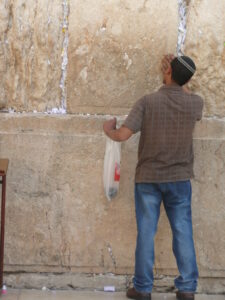 The saints teach us so much about how to follow Our Lord. St. Theresa of Lisieux gave us an example of this in doing our daily tasks. She called it her “little way.” This Theresa had grown up self absorbed and proud of it. In the convent she learned what really mattered in life. She forgot herself, loved the Gospel and lived it.
The saints teach us so much about how to follow Our Lord. St. Theresa of Lisieux gave us an example of this in doing our daily tasks. She called it her “little way.” This Theresa had grown up self absorbed and proud of it. In the convent she learned what really mattered in life. She forgot herself, loved the Gospel and lived it.
The other St. Theresa –of Avila– showed us how to power through the Gospel every day of Our lives. She famously told the story of her fall out of the back of a cart which was taking her to a nearby convent. She fell on her rear –OUCH!– and was alright but let the Lord know she was not happy about it: “Lord, if this is the way you treat your friends, then maybe that’s why there are so few!”
To follow Our Savior doesn’t mean that we are joyless. We all know of those tedious souls who never smile and bear their sufferings for all of us to see. Sanctity, they think, is a life of sadness and grinding boredom. Ghandi once remarked that he’s be a Christian, too, if he could find one.
Yesterday was the memorial day of St. Thomas More who Henry VIII had made Lord Chancellor of England. When Henry announced himself head of the Church in England, defying the authority of the Roman pope, More refused to sign the document of allegiance to Henry. Because of his opposition he lost his head, literally.
Here is St. thomas More praying that through his trials and imprisonment he would not lose his sense of humor:
Grant me, O lord, good digestion and something to digest. Grant me a healthy body, and the necessary good humor to maintain it.
Grant me a simple soul that knows to treasure all that is good and that doesn’t frighten easily at the sight of evil but rather finds the means to put things back in their place.
Give me a soul that knows not boredom, grumbings, sighs and laments nor excess of stress, because of that obstructing thing called “I.”
Allow me the grace to be able to take a joke, to discover in life a bit of joy, and to be able to share it with others. Amen.
Well said, St. Thomas! Through sharing the joy of the Gospel, we can change our world. We just have to get used to forgetting ourselves for the love of Christ.











